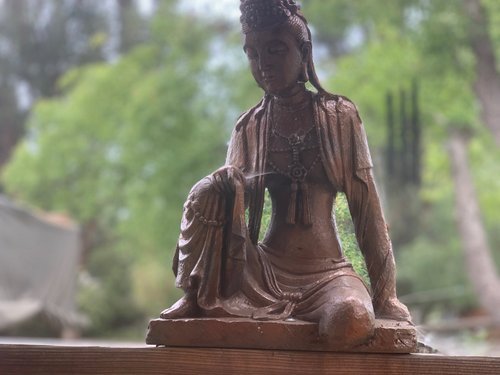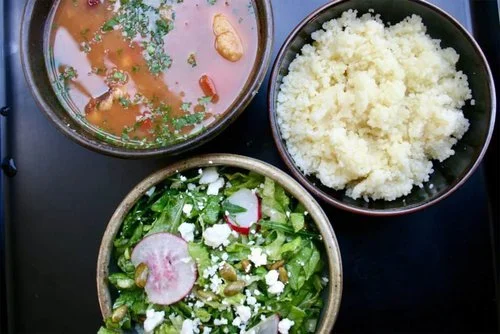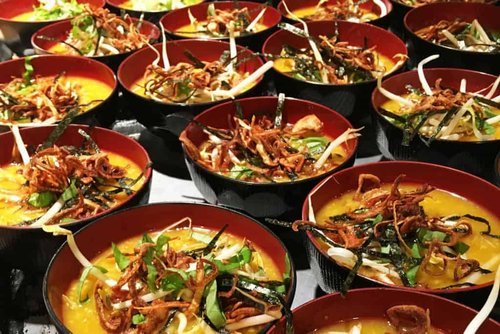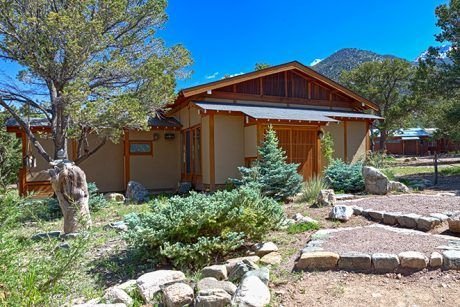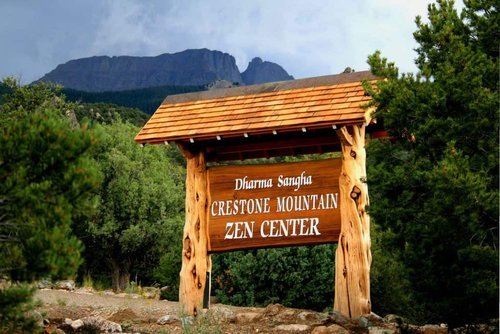YIN & MIND: ADVANCING THE INNER METHODS
LEVEL II TEACHER TRAINING
ADVANCED PRINCIPLES IN MINDFUL PROCESS, INNER METHODS, YIN YOGA ASANA
50HRS YACEP
Level II will focus on the cultivation of an enriched Pranic field and an in-depth investigation of Buddhist Philosophical Principles- which we mingle with psychological self-inquiry and awareness practices in Yin & Yang Yoga Asanas. This course offers advanced anatomy, Yin & Yang Posture Clinics, Neuro-physiology of the Autonomic Nervous System, the path of awakening to the Dharma, and Meditation methodology.
Daily meditation and the monastic atmosphere creates a unique container that enhances our awakening in this advanced level ii Yin & Mind immersion in the heart of the Buddha's teachings and the living art of Yin Yoga….
Each day we will layer physical, emotional, and energetic engagements of an immersive practice life:
PHYSICAL | Home of the Prana Vessel
EMOTIONAL | Home of the Dharma, Inner Methods & Mindfulness
ENERGETIC | Home of the Hara & Chi Body
and organize around the monastic rhythm of retreat life each day with a wholesome integration of the 3 Wisdom Realms of the body:
HEAD | dharma & ifs: Methods of Mindfulness, Shamata, Foundations of Mind, Causes of Suffering, The 4 Noble Truths, Buddhist Principles, Philosophy, & Psychology, Internal Family Systems.
HEART | divine abodes: Intermingling Heart Methods of Karuna Metta Muddita Kshama
HARA | development of Self: Organ health, Mapping the Subtle Body, Vital Center, Yin
WHAT IS 'HARA'?
'HARA [in Japanese] means literally BELLY ... The Japanese speak of Hara no aru (nai) hito, 'the man with (or without) belly [hara]...They speak of Hara no okii or okina 'the man with the big (or small) belly'. None of these expressions implies a visible physiological difference but a difference in character ... What then is Hara no aru kito? The answer comprising all meanings is: a man with Centre.'
-Karlfried Graf von Durckheim
We are as much aware of our self as a whole – our 'soul' - as we are aware of our body as a whole and of the entire space surrounding it, pervading and filling it. Most people’s sense of self is associated with their upper body alone. They experience consciousness or awareness itself as something bounded by their own skins, enclosed in their own ‘head space’ or felt in the form of sensations and emotions in the region of their chest, heart and stomach – all regions above the waist.
We will cultivate the capacity to remain truly centered in 'hara' – that region of the lower abdomen that is recognized in Japan as both the physical and spiritual centre of gravity of the human being.
Hara is a way of being that involves our whole being and that can put us into direct inner contact with the aware inwardness or ‘soul’ of all other beings and its divine source.
“Kali expertly shares her wisdom and working with her has had a powerful impact on my life. The combination of Yin, Buddhism, and Internal Family Systems teachings have helped me restore wholeness and self compassion.
Kali helped me gently and lovingly get to know and unfreeze this part of myself. This has helped me reach a new sense of freedom. Kali sees my Buddha nature and walks on my path with me to safely express and explore deeply personal questions. From this work I feel I have reached a new level of peace in my heart.”
— Practitioner, Colorado
AGENDA
August 10
3-5 check in
5 arrival circle: 3 Wisdom Regions & Awareness Brain Bath
6pm dinner
August 11
8:30 breakfast
10-12:30: HEAD | dharma & ifs
12:30 lunch
2-3:30 HEART | divine abodes
3:30-5 HARA | development of Self
6pm dinner
August 12
8:30 breakfast
10-12:30: HEAD | dharma & ifs
12:30 lunch
2-3:30 HEART | divine abodes
3:30-5 HARA | development of Self
6pm dinner
August 13
8:30 breakfast
10-12:30: HEAD | dharma & ifs
12:30 lunch
2-3:30 HEART | divine abodes
3:30-5 HARA | development of Self
6pm dinner
August 14
10am brunch & send off
checkout by noon
OPTIONAL ADDITIONAL PRACTICE TO BE IN THE RHYTHM OF THE MONKS IN SANCTUARY
morning rhythm
4:30 Wake-up Bell
4:45 Han*
5:00 Zazen*
5:40 Kinhin*
evening rhythm
8:00 Han
8:15 Zazen
Han: In Zen monasteries, a wooden board that is struck with a mallet to summon monastics to the zendo or other practice hall, as well as serving as a time-keeping signal during the monastic day.
Zazen: Seated still meditation. Unlike meditation done in some other spiritual traditions, zazen usually does not involve concentrating one’s mind on a subject, nor is the aim to blank out one’s mind completely. Rather, being aware of one’s breath is recommended. Most zen teachers maintain that zazen is essential to practicing zen.
Kinhin: Walking meditation. Although its meditative aspect is of prime importance, kinhin also serves the purpose of exercising the legs after periods of zazen, helping to establish a useful rhythm of stillness and motion. In Soto practice, the pace is quite slow.
“ If you don’t realize the source of truth, your Buddha Nature, you stumble in confusion and sorrow.
When you realize where you come from, you naturally become tolerant, amused, kindhearted as a grandmother, dignified as a king, immersed in the wonder, you can deal with whatever life brings you and even when death comes, you are ready.”
— Tao Te Ching
. ZEN RETREAT: ACCOMODATION & CUISINES
Residing in guest houses, cabins, or huts, we will be practicing in the traditional zen mediation halls, private tea houses, and world renowned interfaith Practice Dome.
Crestone Mountain Zen Center is located on the western slope of the Sangre de Cristo Mountains in southern Colorado. Nestled against rugged 14,000-foot peaks and surrounded by 240 acres piñon pine and juniper forest, the beauty and seclusion of our Center is a unique environment for contemplation and inquiry.
Crestone Mountain Zen Center offers residential monastic Zen practice and meditation under the guidance of Head Teacher, Zentatsu Baker Roshi, Dharma Heir of Shunryu Suzuki Roshi.
Delicious meals home made by the famous Zen monks known for their fresh garden and creative cooking.
The kitchen is the heart of Crestone Zen. Meals are prepared fresh three times daily fresh from the garden and infused with a commitment to nourishment. Meals are simple, unpretentious, healthy, delicious nourishment here. The cuisine at Crestone Mountain Zen Center is vegetarian and includes dairy and eggs. Meals are mostly organic ingredients and Non-gluten, non-dairy, and non-soy diets can be accommodated for an additional $10.00 per person per day fee. Please inform us of restrictions at least two weeks prior to arrival.
Crestone Mountain Zen Center is well known for its fine and inventive vegetarian cuisine. The kitchen is the heart of our community. Our meals, prepared three times a day from fresh ingredients, express our commitment to care and nourishment.
Our food culture is based in the Zen tradition known as “oryoki,” which means “just enough.” Oryoki refers both to a set of nested bowls and the ritual of using the bowls to serve, receive and eat the food. Like the Japanese tea ceremony, oryoki practice is a gestural enactment of a set of principles that include simplicity, attention to detail, interdependence, generosity, and utmost respect for each person, ingredient, and utensil.
As an individual guest, you will eat the same food as the monks and residents. The meal will be served in three bowls, carefully composed to highlight individual textures, tastes and colors. It’s simple, unpretentious, healthy, delicious food, in which we strive to let the voice of each ingredient be heard in the chorus of flavors.
SEE INFO ON GETTING TO CRESTONE MOUNTAIN ZEN CENTER HERE.
“Deep in the wild mountains is a trading post where you can exchange the stress and noise of everyday life for eternal Light.
Go there on retreat.
In the still center of luminous empty essence is a blissful tremor, the heartbeat of the universe: the Great Dakini breathing as Love Itself.
Go there on retreat.
In the background of the gap between thoughts and breaths awareness naturally recognizes itself as non-conceptual wisdom shining continuously.
Go there on retreat.”
— Milarepa
daily retreat life in the training field of this advanced immersion will include
- Daily Yin & Yang Asana
-Pranayama & Chi Enrichment Practices
-Buddhist philosophy & meditation instruction
-optional Zazen with the Monks: Early morning and afternoon traditional meditation sessions
-Divine Abodes / Heart Methods
-3 Delicious home made meals per day
-Daily free time to rest, write, walk and hike about the property
-Local hot-springs and hiking available nearby
ABOUT THE FACILITATOR
Kali Basman
“Eloquent and concise, Kali speaks of ancient wisdom”
“Kali is the definition of wisdom. I feel held in such an intuitive deep space. Her teachings are enlightening and expanding. I feel this knowledge will stay with me forever”
“I feel like my practice is easier to slip into any time of the day now, I feel like I can rest more in my truth. Realizing that moments of nirvana are accessible when reactivity ceases rocked my world. I feel very grateful for the practice of beautiful mind states and the moments of surrender of identifying with codified behavior and thoughts.”
See more tesimonials here.
International and intentful Yin & Restorative Yoga teacher of teachers, Kali Basman, offers an intermingling of wisdom disciplines: Foundations of Buddhist mindfulness, the pranic pathways of Traditional Chinese Medicine meridians, physiology of the nervous system, and individual-informed anatomy. Leading yin and mindfulness focused trainings and retreats across the globe, Kali pays reverence to her lineage of teachers, Sarah Powers, Jack Kornfield, Judith Hanson Lasater and more.



